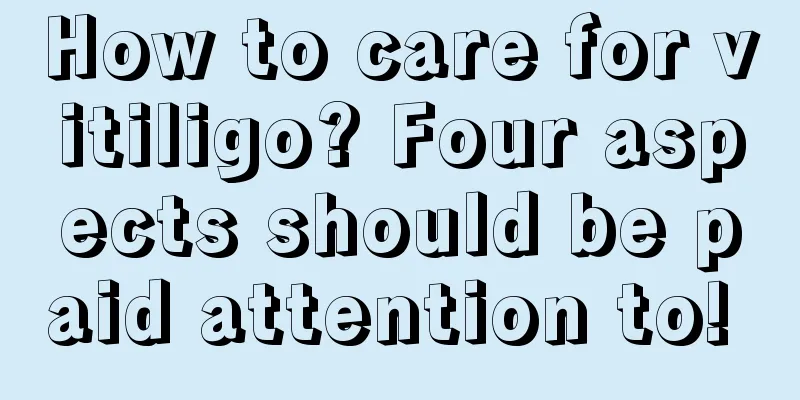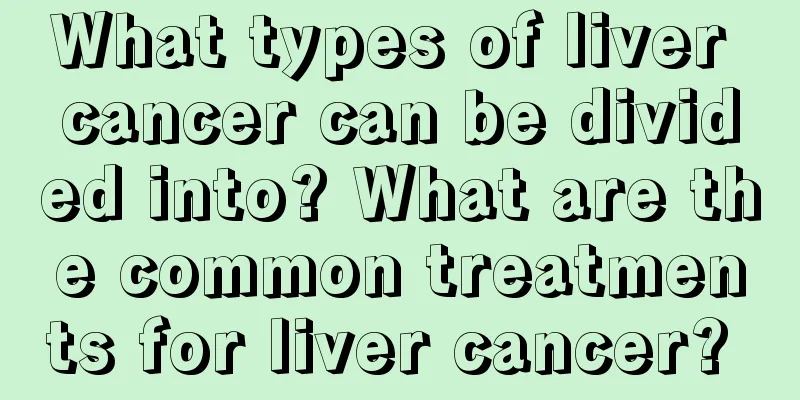What to do if you have gallstones

|
Gallstones are a very common disease in daily life. They not only cause great harm to the patient's physical health, but also seriously affect their normal life and work. Therefore, it is particularly important to find a scientific and effective treatment method. However, experts recommend that gallstones should not be crushed or dissolved, because the gallbladder will also be dissolved during the dissolution process. It can be treated with conservative treatment methods. 1. Gallbladder stones cannot be broken or dissolved. The lithotripsy in the hospital is mainly used to crush kidney stones and ureteral stones. After it is broken into pieces, you can excrete the broken stones by drinking more water and urinating. The gallbladder cannot dissolve stones. If the stones can be dissolved, then the strong solvent may also dissolve the gallbladder. The gallbladder cannot break up stones either. If it is a big stone, it will not fall from the gallbladder duct into the common bile duct; the lowest end of the common bile duct, the opening where it enters the intestine, is like a funnel, getting thinner and thinner. If it is broken into pieces, it will block the opening and cause renal syndrome. More serious cases are cholangitis or acute cholangitis, which are fatal diseases. 2. Relatively conservative treatment For patients with acute cholecystitis, anti-inflammatory and bile-draining treatments are generally adopted. In the first three days of acute cholecystitis, cholecystectomy can be performed; if the gallbladder and surrounding tissues are edematous after three days, there is a certain risk in surgery because it may accidentally injure the common gallbladder duct and other tissues. The gallbladder can be saved through conservative treatment. If the baby cannot be saved, a cholecystostomy may be needed, which is mainly to suck out the bile that has pus or is infected with bacteria in the gallbladder. Wait three months later, and then have a second operation to remove the gallbladder. At this time, the operation will be safe. 3. Not advocating gallbladder preservation and stone removal Twenty years ago, in order to cater to the patients' reluctance to have their gallbladders removed, the treatment measure generally adopted was to preserve the gallbladder and remove the stones. This practice is not recommended now. Why is that? Because gallstones or cholecystitis have two dangers: the first is that it causes pain. When the disease strikes, I feel very uncomfortable, with fever, pain, and I dare not eat oily food. The second is that there are stones rubbing inside, which will become chronic cholecystitis, which is a precancerous lesion. Over time, it may turn into gallbladder cancer. Once you get gallbladder cancer, the average survival time is often only about six months, so you cannot wait until you get gallbladder cancer to have surgery to remove it. If you just do a gallbladder-preserving stone removal surgery, the stones will be removed, but the gallbladder may grow stones again. In addition, the gallbladder may have a tendency to become cancerous. The longer the time, the greater the chance of cancer. So under what circumstances does a patient need to have his gallbladder removed? The first is the repeated attacks of acute cholecystitis; the second is that if the gallbladder stones are larger than two centimeters, even if there are no symptoms, it is recommended to remove the gallbladder; the third is the appearance of full gallstones, that is, the gallbladder is full of stones. At this time, the gallbladder function is severely atrophied, and it cannot discharge bile to digest fat. The risk of gallbladder cancer increases, and it must be removed; fourth, patients with biliary pancreatitis need to do it, because the bile duct and pancreatic duct open together. When small stones in the gallbladder duct are discharged and block the pancreatic duct, it will cause pancreatitis. Pancreatitis is a very dangerous disease. Fifth, surgery is also recommended for gallbladder polyps with a thickness of more than 1 cm. Gallbladder polyps generally refer to lesions that protrude or bulge within the gallbladder cavity. Single large polyps have a higher chance of becoming cancerous, so resection is recommended. |
<<: Laparoscopic surgery for gallstones
>>: What to do if there are stones in the hepatic duct
Recommend
What to eat for ovarian tumor
What to eat for ovarian tumor? Over the years, th...
What are the tumor markers of liver cancer? How to treat liver cancer?
We all know that liver cancer is a disease caused...
How much harm does masturbation do to teenagers
Everyone has adolescence. During this period, alm...
What can clean blood vessels?
The problem of blood vessel blockage is becoming ...
Can health products cure insomnia?
Health care products are quite common in our dail...
What are the early symptoms of liver cancer?
In recent years, liver cancer has become a major ...
What are the complications of pancreatic cancer
What are the complications of pancreatic cancer? ...
I feel a sense of anal drooping and always want to go to the toilet. What's going on?
If you often experience a feeling of anus heavine...
It's not a disease if you love to shake your legs
Is there anyone around you who loves to shake the...
What should I do if my neck becomes fibrotic after radiotherapy for nasopharyngeal carcinoma? Can it be cured?
The treatment of nasopharyngeal carcinoma general...
How to treat tooth decay pain?
Some friends may have cavities, which is a proble...
What are the early symptoms of liver cancer? Beware of liver cancer if you notice these three symptoms when you wake up
The liver is one of the most important organs for...
Revealing the late symptoms of cervical cancer to you
Cervical cancer is one of the most common maligna...
How can lung cancer patients determine whether metastasis has occurred? You can determine it from the following aspects
Lung cancer is a disease that is easy to metastas...
Remedy for the slightly bitter taste of braised pork
If the braised pork tastes a bit bitter, it is mo...









